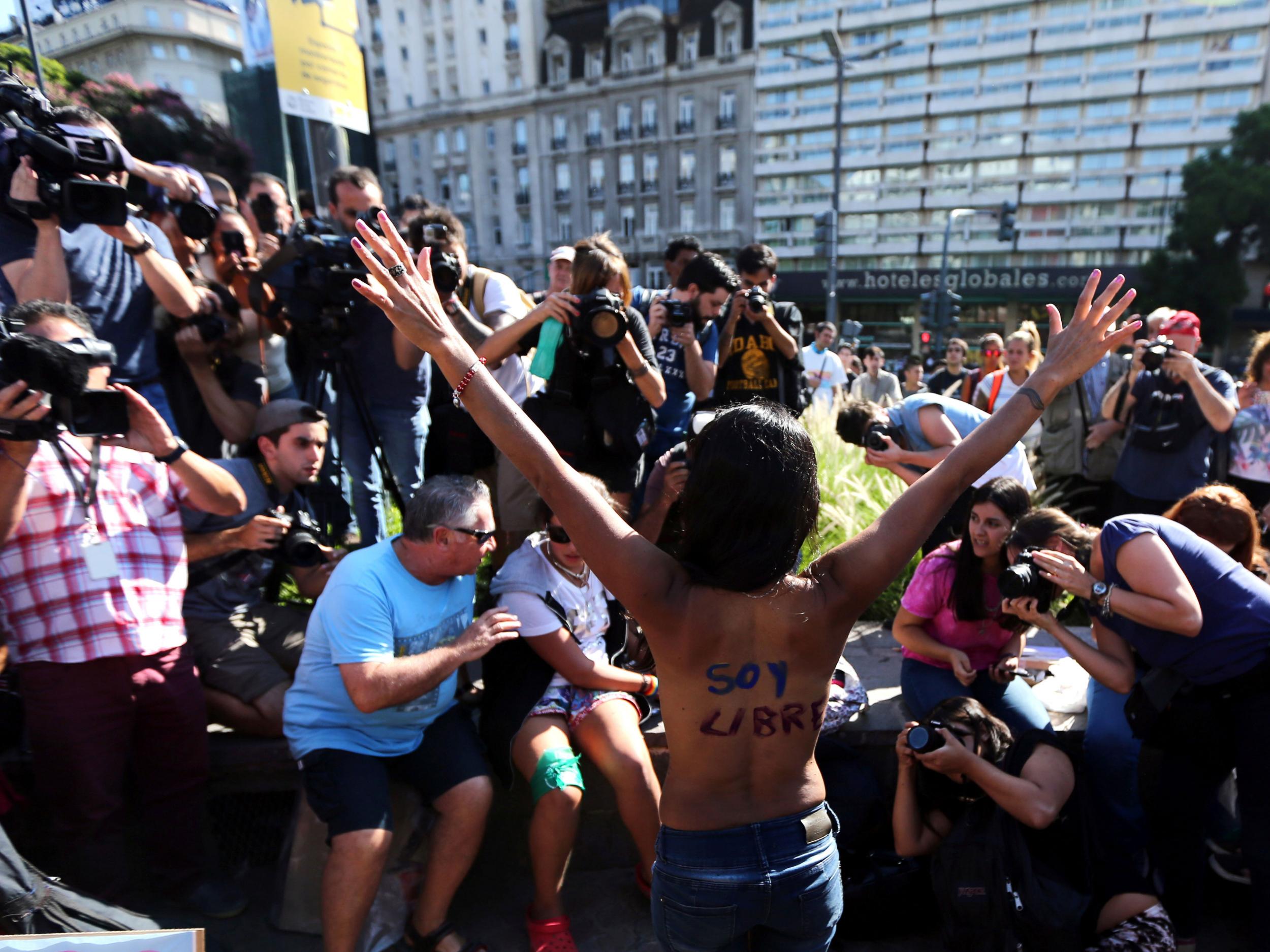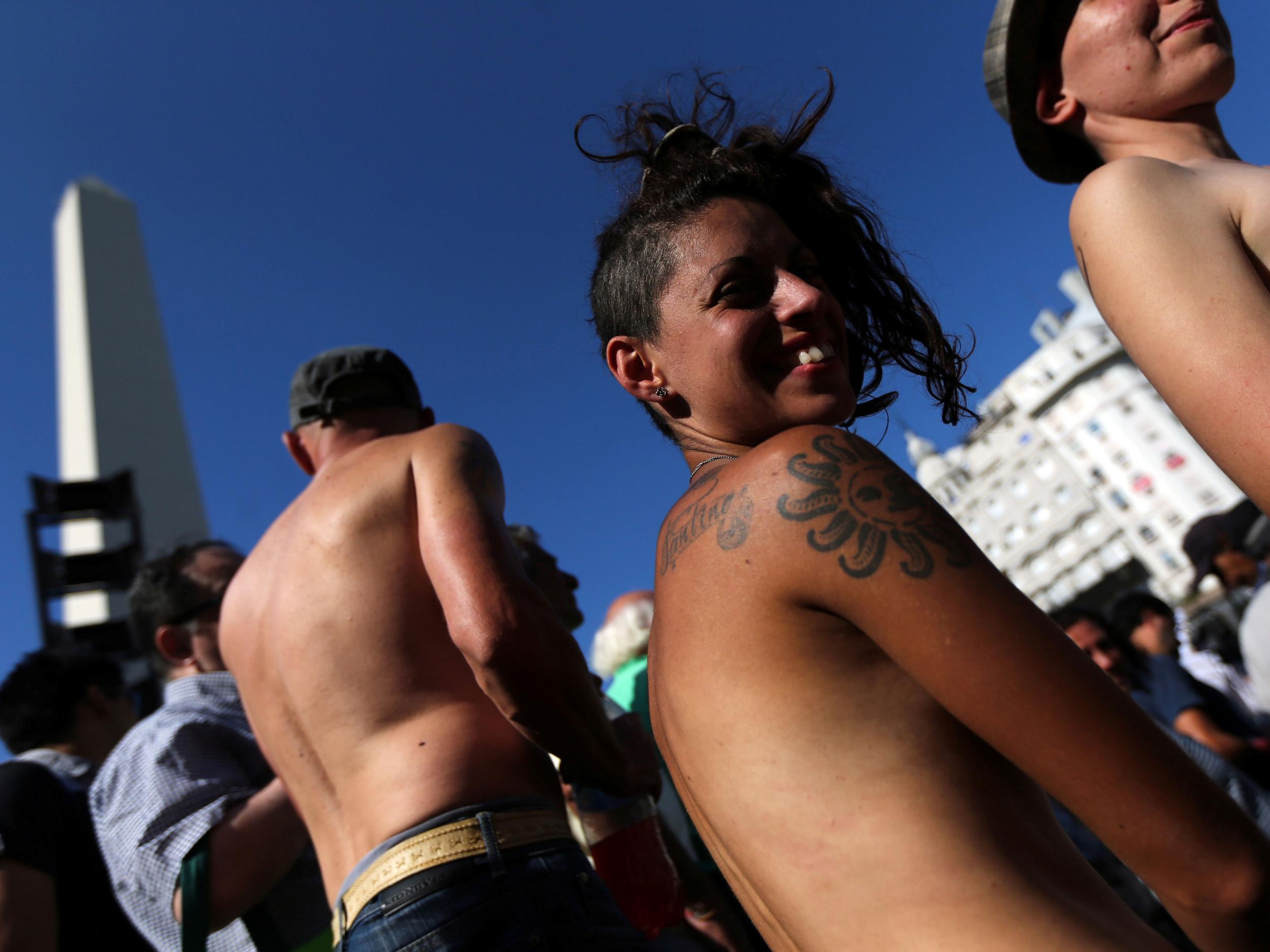Women in Argentina protest topless for the right to sunbathe in the nude
Protestors say it is just latest example of gender inequality in Catholic South American country

Your support helps us to tell the story
From reproductive rights to climate change to Big Tech, The Independent is on the ground when the story is developing. Whether it's investigating the financials of Elon Musk's pro-Trump PAC or producing our latest documentary, 'The A Word', which shines a light on the American women fighting for reproductive rights, we know how important it is to parse out the facts from the messaging.
At such a critical moment in US history, we need reporters on the ground. Your donation allows us to keep sending journalists to speak to both sides of the story.
The Independent is trusted by Americans across the entire political spectrum. And unlike many other quality news outlets, we choose not to lock Americans out of our reporting and analysis with paywalls. We believe quality journalism should be available to everyone, paid for by those who can afford it.
Your support makes all the difference.Argentinian women are going semi-nude in a protest for the right to sunbathe topless.
Police, as seen in a heated exchange captured on film involving dozens of people, asked three young women lying on a southern Buenos Aires beach to put their shirts back on.
Dozens of topless women and hundreds of fully-clothed people, in a demonstration that was copied elsewhere in the country, have been protesting at the Buenos Aires’ Obelisk monument this week.
It remains unclear what, if any, the law is surrounding nudity on the South American country’s beaches.

Police during the January incident cited a national criminal code article prohibiting “obscene displays”, but at least one judge has since said that going topless is not a crime.
Some protestors told journalists the incident was just the latest example of grave social inequality between men and women in the traditionally Catholic nation.
It followed the “Not One Less” protests late last year, in which tens of thousands of Argentines protested gender-related violence after the rape and killing of 16-year-old Lucia Perez.
There were 235 “femicides”, a term written into Argentine law, in 2015.
“In many places, when a woman reports gender violence, they don't listen, but when a woman shows her breasts they send so many police,” said Grace Prounesti Piquet, a 33-year-old photographer.
She had the words “the breast is not a crime” painted in pink on her back.
“It's a shame.”
One protester had “censor this” written on her chest, and another: “We are not going to ask you for permission.”
A sign read: “The only breasts that bother them are the ones that aren't for sale.”
Protester Daiana Asquini also told Associated Press at the scene: “We women have the right to the free use of our bodies.”
Join our commenting forum
Join thought-provoking conversations, follow other Independent readers and see their replies
Comments